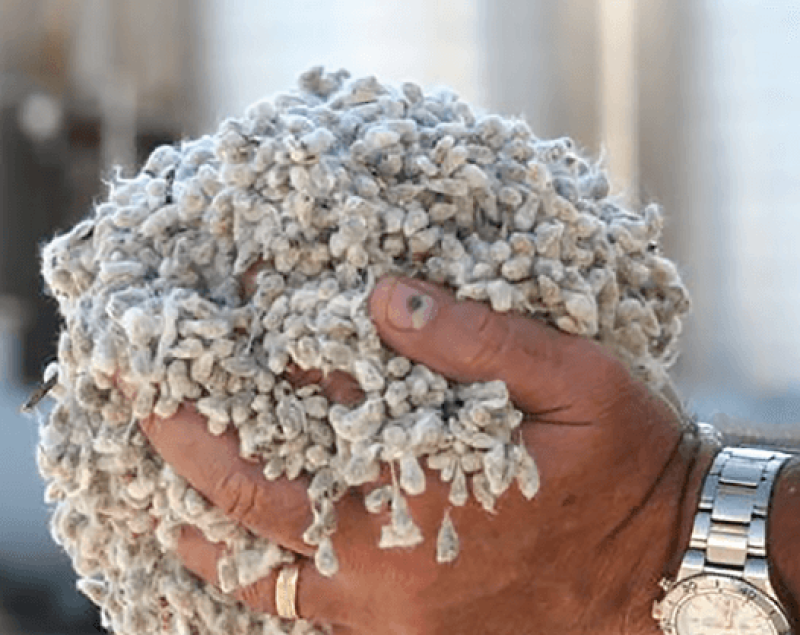Americans may soon be eating cotton for the first time — not just wearing it — as a new edible variety is poised to enter the market.
On [October 16], the U.S. Department of Agriculture gave the green light to commercialize a biotech version of the cotton plant whose seeds can be eaten, according to Texas A&M University, which developed it over more than two decades. U.S. Food and Drug Administration approval is still needed, which the university said it expects within months. After that, farmers will be able to grow cotton for food as well as for fiber.
Texas A&M professor Keerti Rathore started working on the project 23 years ago, and figured out how to silence a gene in the plant that produced a toxin, called gossypol. While gossypol protects the plant from insects, it made the seeds inedible to humans and most animals.
“It’ll taste like hummus,” Rathore said. “It’s not at all unpleasant.”
…
As a tree nut, its nutritional value is similar to other nuts, like almonds or walnuts. Food technologists have experimented by making cottonseed milk, crackers, cookies, nut butters and chopped-nut substitutes …. The protein could also be extracted and made into a powder that can go into energy bars or flours ….
Read full, original article: Eat Your Shirt? Edible Cotton May Soon Be a Massive Cash Food Crop































